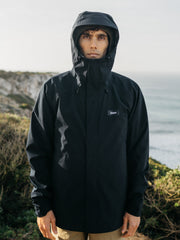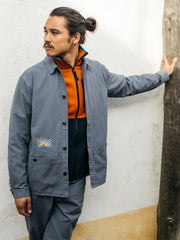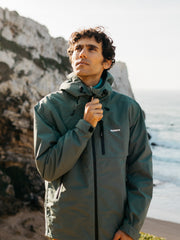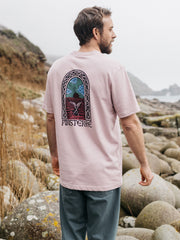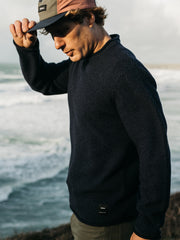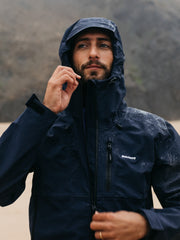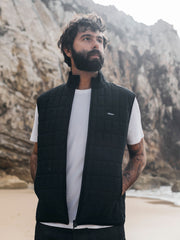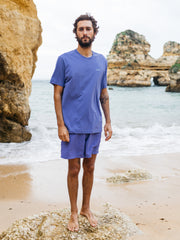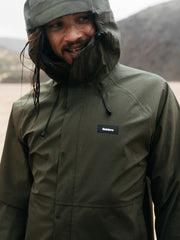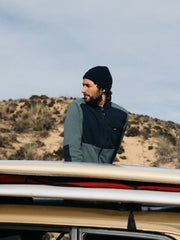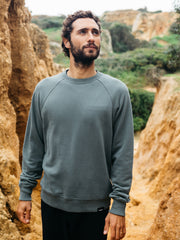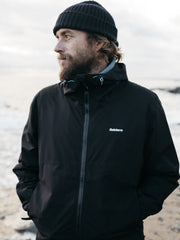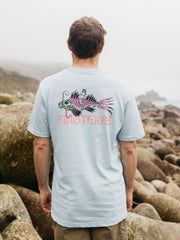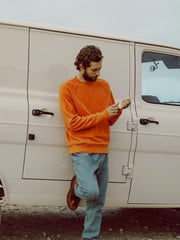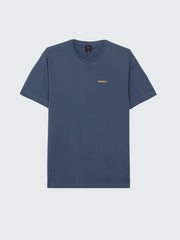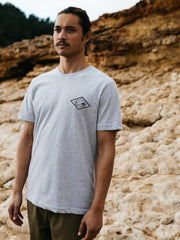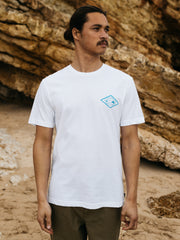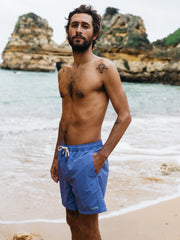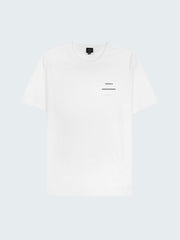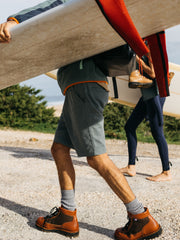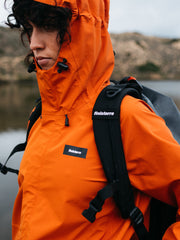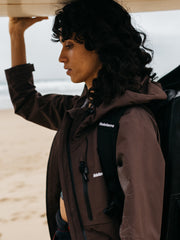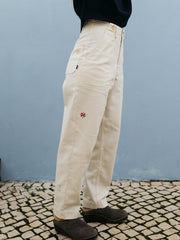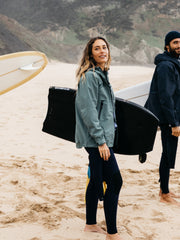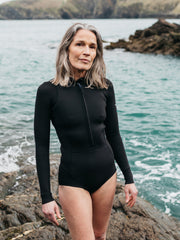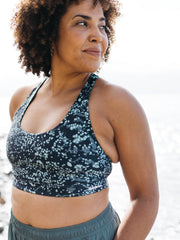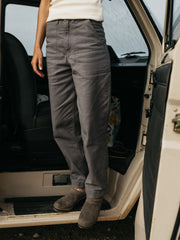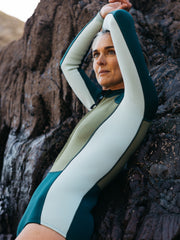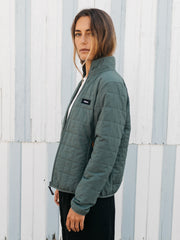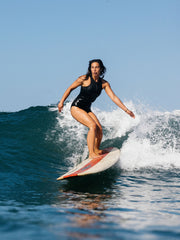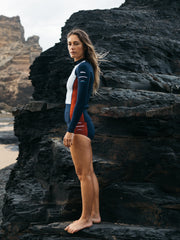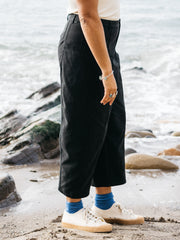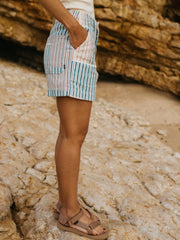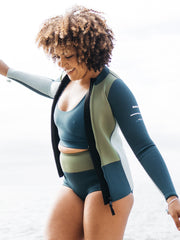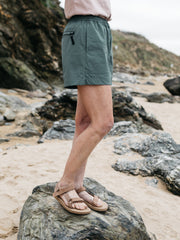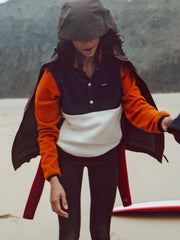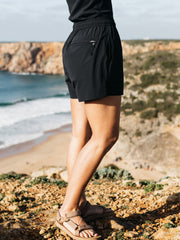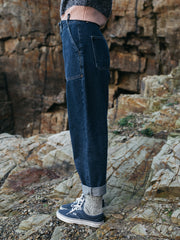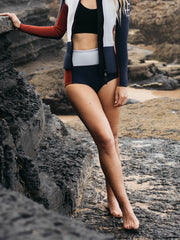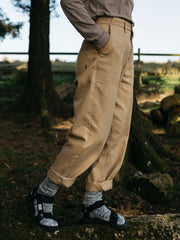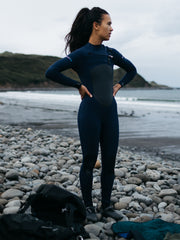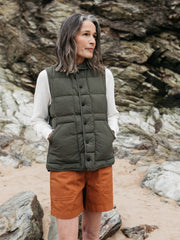Meet the Canadian freediver and surfer spreading ocean love and marine stewardship.
Ali Carrier: Oceanographer Extraordinaire
29.08.23
4 min read
Words by Nora O’Malley
Photography By David Gray
“Am I allowed to just surf?”
Ali Carrier gripes from her front porch nestled in the sleepy coastal village of Ucluelet, B.C. on Vancouver Island.
Her outdoor set-up is classically West Coast, Canadian: wetsuits hang from an intricate rope/pole contraption, there’s a huge dry bag on the floor, a dog’s water dish on the stoop, and a wall of herbs decorate the bench shill. The sun slowly dips behind the rainforest horizon.
“It’s not fun,” she admits as we wade into the topic of being one of the only Black faces in the line-up. “I wish I was not alone. It’s intimidating.”
When she first made her way to the West Coast about seven years ago, the locals were less than inviting. She even cut her long dreadlocks short because she was so sick and tired of being asked if she is on drugs or selling drugs.
But perspectives are changing, she says.
“Because they saw me out there in the winter and the summer. And they saw me out there when it’s raining or sunny,” Ali expresses in her thick French Canadian accent.
She wants people to get over the stereotypes. She wants the microaggressions to drain out and for people to open their minds to the definition of a surfer; it doesn’t always have to be the babe with the performance shortboard tucked under their arm, but rather a mixed quiver.
“Diversification of the line-up feels good for everyone. Even for white, privileged people, it will feel good. There is more room for inclusivity and not just skin colour, but the different body shapes, styles of surfing, and surfboards too.”
Explore our Nieuwland Yulex® Wetsuits
Her impressive depth of ocean knowledge begins with a Bachelor in Bio Marine Science and a Masters in Oceanography.
Originally from Quebec City on the East side of Canada, Ali relocated to Vancouver Island so she could study the impact of harbour seals on hatchery salmon.
“We were able to understand how much of the seal’s diet was salmon coming from the hatchery,” she explains.
She went on to parlay this research into a marine stewardship role within the Toquaht Nation Government fisheries department. Ali, who is a mix heritage of Québécois and Senegalese, says the coastal First Nations community uses a similar approach to fisheries to West Africa.
“It integrates cultural knowledge and ancestral practices into modern practices,”
She says, noting that stories often inform the fishers about the best approaches.
Ali has her small vessel operator license, and a couple of years ago, she started volunteering for the Ucluelet Royal Canadian Marine Search and Rescue team.
“Yet even nowadays in the water, people might tell me to be careful because I might drown. Or so often I get mansplained about how the tides work,” she reveals with a giggle.
We talk with fondness for the long-serving, white men she might replace one day when a mayday call comes in at the local marine search and rescue station.
“Right now we are a bunch of rookies, but they are getting ready to pass all the tasks, all the duties to someone else.”
Ali wears the Save The Sea Knitted Jumper - Coming Soon
Ali’s voice lights up when she starts to talk about freediving.
“It’s a very, very old art and it’s also a young science and sport. There is a lot of unknown about it. From a biological point of view, it’s very interesting,” she says, adding that what she loves most about the sport is, like surfing, it’s centred around being in the water and understanding your own body capacity.
She also helps out with Rising Tide, Canada’s Indigenous youth surf club, and hopes to one day bring the same level of free instruction to coastal youth when it comes to freediving and harvesting from the water.
“A lot of these kids want to go down. They are very interested about this. Maybe one day I can help bring this to the BIPOC communities,” Ali says.
During our time in Canada, we were grateful to be travelling across a diverse number of First Nations' traditional territories.
We want to acknowledge these First Peoples – past, present and future – as the original stewards of these lands and waters since time immemorial.


